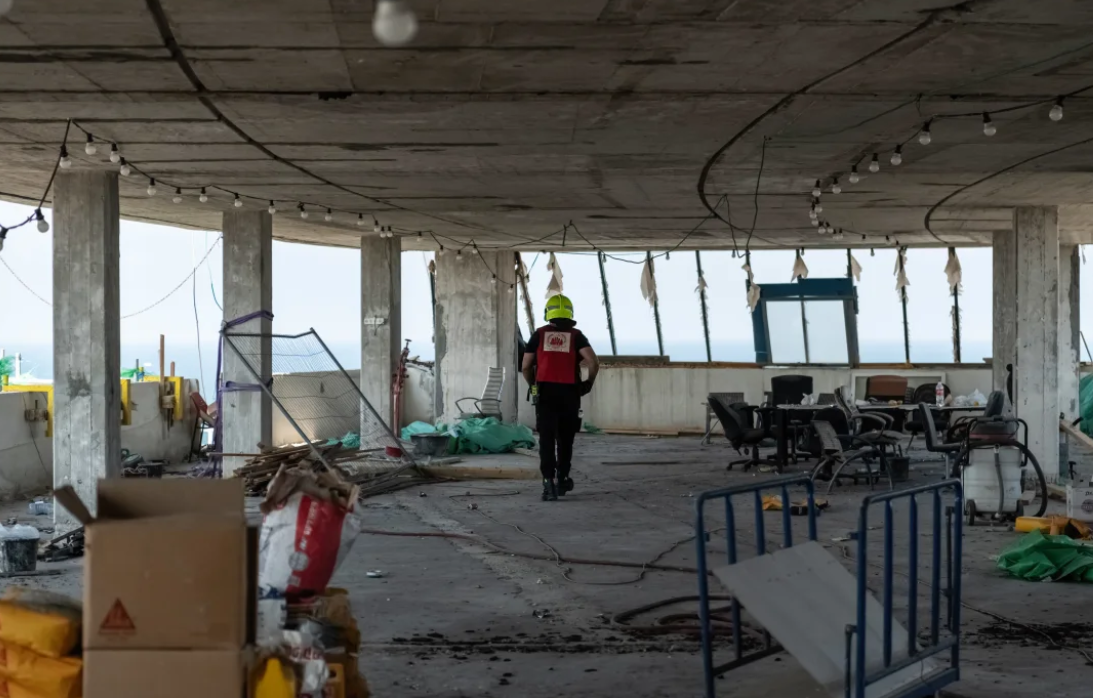Israeli Airstrikes Houthi military targets in Yemen following a deadly drone attack on Tel Aviv. The conflict marks Israel’s first direct military action in Yemen
Israeli Airstrikes Target Houthi Rebels in Yemen After Tel Aviv Attack
In a significant escalation, Israeli airstrikes targeted Houthi rebels in Yemen following a deadly drone attack on Tel Aviv. The Israel Defense Forces (IDF) announced that its fighter jets struck “military targets of the Houthi terrorist regime” near Yemen’s Hodeidah Port on Saturday. Israeli Prime Minister Benjamin Netanyahu asserted that this was a direct response to the death of a 50-year-old Israeli in a Houthi drone strike on Tel Aviv the previous Friday.
This action marks the first instance of Israeli airstrikes in Yemen, confirmed by Israeli authorities. Houthi-operated Al Masirah TV reported that the strikes targeted oil installations in the port on Yemen’s western coastline, resulting in at least 80 injuries, predominantly severe burns.
Houthi spokesperson Mohammed Abdulsalam stated that the strikes also hit civilian locations and a power plant, condemning what he described as “brutal Israeli aggression” aimed at amplifying the “suffering of the people of Yemen” and coercing them to cease their support for Gaza.
Houthi military spokesperson Yehya Saree pledged retaliation, warning that the Houthis would not hesitate to target Israel’s “vital sites” and emphasized that Tel Aviv remains vulnerable. “We are prepared for an extended conflict with this adversary until the aggression ceases and the blockade on the Palestinian people is lifted,” Saree declared.

Prime Minister Netanyahu proclaimed, “It makes it clear to our enemies that there is no place that the long arm of the state of Israel will not reach.” IDF spokesperson Daniel Hagari indicated that the strikes were also a reaction to the approximately 200 projectiles the rebel faction has launched towards Israel since October, coinciding with Israel’s conflict with Hamas in Gaza.
Since the onset of the war, the Yemeni rebels have consistently targeted the nation with drones and missiles, most of which have been intercepted by Israel’s defenses or those of its allies. However, the Houthis claimed their drone assault on Tel Aviv Friday – which also injured 10 people – was executed by a new drone capable of “evading the enemy’s interception systems.” The Houthis have also frequently targeted US interests and commercial vessels in the Red Sea.
Both the UK and the US have responded to the assaults on shipping by executing strikes on Houthi positions in Yemen. Nonetheless, Israel has not partaken in these responses. An Israeli defense official informed CNN that this was a solely Israeli operation. The official mentioned that Israel had previously allowed the US and UK to lead the responses to Houthi attacks but opted to act independently this time due to the Israeli casualty in Tel Aviv.
According to the official, Israeli Defense Minister Gallant notified US Secretary of Defense Lloyd Austin before the strike was conducted. The defense official added that Israel was able to respond swiftly because it had been preparing for this scenario for months.
A White House official stated that US President Joe Biden had been briefed on the “developments” in the Middle East. A spokesperson for the White House National Security Council mentioned that the US had not coordinated with Israel on the airstrikes but acknowledged Israel’s “right to self-defense.”
Regional Tensions Escalate
The strike on Hodeidah occurs amid escalating tensions in the region. In recent weeks, the Lebanese Iran-backed Islamist faction has been intensifying cross-border attacks with Israel following months of low-intensity skirmishes, prompting the Israeli military to declare its readiness to launch a large-scale offensive on its northern border.
Following the Hodeidah strike, Israel’s Minister of National Security Itamar Ben Gvir lauded Netanyahu for the operation and suggested that Israel should “adopt the same policy against Hezbollah in Lebanon.” Israeli Finance Minister Bezalel Smotrich and Defense Minister Yoav Gallant echoed Gvir’s sentiment. Smotrich asserted that Israel must persist in attacking “with all its might even in distant locales,” while Gallant remarked that “the blood of Israeli citizens has a price,” and that wherever Israelis are attacked the “consequence will be identical.”
Hezbollah in Lebanon denounced the attack on Yemen and expressed solidarity with the Yemeni people in their defense of sovereignty and their “heroic and historic stance alongside Palestine.” Hamas also condemned the strike, labeling it a “dangerous escalation.”
Meanwhile, Israeli Minister of Foreign Affairs Israel Katz called on the international community to “intensify sanctions on Iran.” “Iran supports, trains, and finances the Houthi terror organization as part of its regional network of terror factions aimed at attacking Israel,” he said. “Iran is the head of the snake – it must be stopped now,” Katz added.
Iran condemned the Israeli strike on Hodeidah. Ministry of Foreign Affairs spokesperson Nasser Kanaani cautioned about the risk of war in the region, stating that Israel’s actions in Gaza were the “root” of the escalating tensions. “The oppressed but resilient people of Yemen are bearing the cost for their noble support of the innocent citizens, women, and children of Gaza,” Kanaani said.